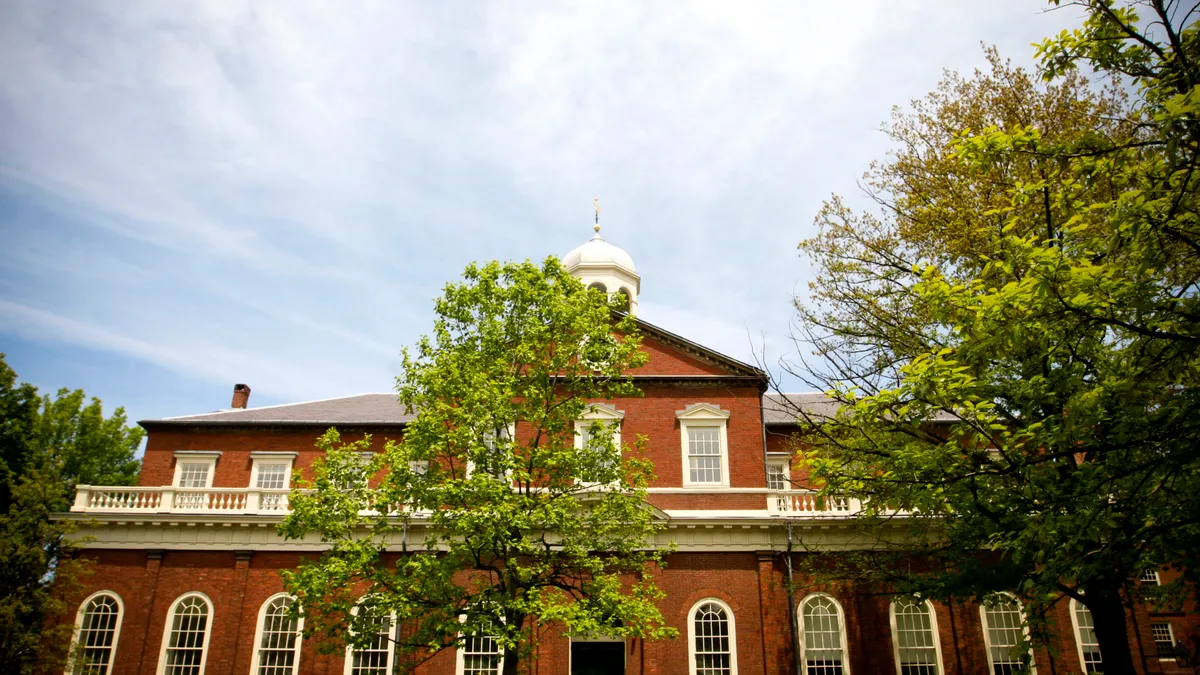Dive Brief:
- Harvard University will once again require applicants to submit SAT or ACT scores, it said Thursday, reversing a test-optional policy that it implemented during the coronavirus pandemic.
- The new policy will take effect for the class of 2029, whose members will apply to Harvard during the upcoming fall and winter. If they can’t access the exams, they can instead submit alternatives such as Advanced Placement or International Baccalaureate scores.
- The surprise announcement reverses Harvard’s earlier policy, which had extended test-optional admissions through the class of 2030. With the change, Harvard becomes the latest Ivy League institution to switch back to standardized testing requirements in the past few months.
Dive Insight:
Hopi Hoekstra, Harvard’s dean of Faculty of Arts and Sciences, contended this week that students may withhold exam scores that could have potentially helped their application under test-optional policies.
“More information, especially such strongly predictive information, is valuable for identifying talent from across the socioeconomic range,” Hoekstra wrote in a letter to the Faculty of Arts and Sciences community.
The other Ivy League colleges that have recently switched back to standardized testing requirements — Dartmouth College, Yale University and Brown University — have cited similar reasoning.
In Dartmouth’s case, officials cited internal research that found many high-achieving but less-advantaged applicants who would have benefited from including their scores instead opted to withhold them.
Harvard referenced research looking into admissions at the so-called Ivy Plus colleges, which include those in the Ivy League and other top-ranked institutions like Stanford University.
Opportunity Insights, a research nonprofit based at Harvard, found that SAT/ACT scores are one of the best predictors of post-college outcomes.
Researchers also noted the scores have potential biases that may favor high-income students. But in a statement Thursday, Raj Chetty, director of Opportunity Insights and economics professor at Harvard, said that other measures like essays and recommendation letters are even more prone to these types of biases.
“Considering standardized test scores is likely to make the admissions process at Harvard more meritocratic while increasing socioeconomic diversity,” Chetty said.
However, FairTest, a group advocating for limited uses of standardized testing, has pushed back on these types of arguments.
“The tests hurt the chances of far more poor and underrepresented students of talent than they help,” the group said in February as part of a 25-page report. “Far more human potential is left on the shelf because of the tests than is uplifted by their identifying and sorting properties.”
Despite high-profile returns to standardized testing, many colleges have retained their test-optional policies. More than 2,000 four-year colleges do not require exam scores for students applying to the fall 2024 semester, according to a recent tally from FairTest.















